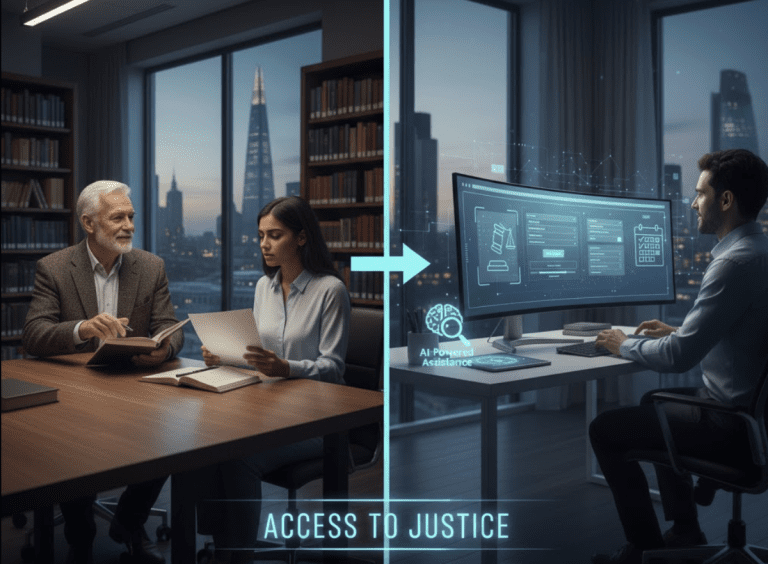Understanding the Role of Legal Help in Small Claims
Small claims courts in England and Wales are designed to be accessible, efficient, and cost-effective. They exist so that ordinary people and small businesses can resolve disputes without needing to hire expensive solicitors or attend complex legal proceedings. However, even with simplified procedures, navigating the system can still be confusing — especially for first-time claimants or defendants.
That’s why online legal help for small claims UK services have become essential. From free community legal centres to advanced AI-driven platforms, there are multiple ways to access affordable and reliable guidance without paying thousands in legal fees. Choosing the right kind of support depends on your case complexity, confidence level, and desired involvement in the process.
When You Might Need Legal Help
While small claims are designed for self-representation, there are many situations where guidance can make a real difference. You might need legal help if:
- You’re unsure how to write your claim or defence statement.
- You’ve received a court claim and don’t understand the allegations.
- The other party has legal representation.
- You need help understanding court procedures or deadlines.
- You’re uncertain about what evidence to include.
Even if you’re confident handling your case, getting structured guidance early can prevent costly mistakes later — such as missing a response deadline or submitting incomplete documentation.
Free and Low-Cost Legal Support Options
1. Citizens Advice Bureau (CAB)
The Citizens Advice Bureau offers free guidance on your rights and responsibilities in small claims cases. They can help you understand forms, deadlines, and procedures but typically do not represent you in court.
2. LawWorks and Legal Clinics
LawWorks is a charity that connects individuals with volunteer solicitors for free or low-cost legal help. Many law schools and community centres also run small claims clinics that review your documents and explain procedural steps.
3. Online Legal Forums and Helplines
Several government-supported and independent forums provide free online advice. While useful for basic questions, it’s important to verify that information is up-to-date and relevant to your jurisdiction (England and Wales).
AI and Technology-Based Assistance
Technology now plays a transformative role in improving access to justice. AI-powered tools and online platforms use intelligent question flows, document templates, and automation to guide users through every stage of a small claim.
These systems help you:
- Draft claims or defences using plain-language questions.
- Automatically calculate deadlines and court fees.
- Organise and format evidence for submission.
- Receive reminders and procedural updates.
This type of support is particularly valuable for individuals who want to handle their own cases but lack legal training. It bridges the gap between full legal representation and complete self-representation — offering structure, clarity, and compliance with court rules.
Benefits of Using Automated Legal Platforms
Unlike static online guides, AI-based legal tools can adapt to your specific situation. They analyse your inputs to generate customised, court-ready documents and ensure that all necessary fields are correctly completed.
Some of the main benefits include:
- Accuracy: Fewer procedural errors and missing details.
- Speed: Instant document generation and submission guidance.
- Affordability: Flat fees or “pay if you win” pricing.
- Convenience: Accessible 24/7 from any device.
By combining automation with expert-reviewed workflows, these platforms make the small claims process much more manageable for everyday users.
Why CaseCraft Fits the Small Claims Needs of UK Users
For most people, the biggest barrier to justice isn’t the law itself — it’s complexity and cost. CaseCraft’s AI-powered system provides affordable guidance for both claimants and defendants, helping users prepare legal documents, meet deadlines, and stay compliant with UK small claims procedures.
Its design reflects modern legal tech principles: clarity, simplicity, and efficiency. By eliminating paperwork and automating key steps, platforms like CaseCraft make it possible for anyone to take confident action in their case.
When Professional Legal Advice May Still Be Necessary
While AI and self-help resources are suitable for most small claims, there are scenarios where professional advice remains important — for instance, if:
- The claim involves counterclaims or multiple parties.
- The dispute value approaches or exceeds the £10,000 limit.
- The case includes complex contracts or unclear liability.
- You plan to appeal a judgment.
In such cases, a short consultation with a solicitor can provide clarity and strategic direction, even if you continue managing the case independently.
Frequently Asked Questions (FAQ)
1. Can I get free legal help for a small claim in the UK?
Yes. Organisations like Citizens Advice, LawWorks, and legal clinics offer free guidance on small claims procedures and documents.
2. Do I need a solicitor for a small claim?
No. Small claims are designed for self-representation, but professional or AI-based support can improve your accuracy and confidence.
3. Are AI legal platforms recognised by UK courts?
Yes. You can prepare and submit court-approved documents using AI tools, as long as they meet the Civil Procedure Rules.
4. What kind of disputes qualify for small claims?
Common cases include unpaid debts, faulty goods, poor services, or minor property damage — typically under £10,000.
5. How long does it take to resolve a small claim?
Timelines vary, but most cases conclude within two to four months, depending on whether a hearing is required.


